The Outer Worlds review: The new game you are going to love
The Outer Worlds has been generating a lot of hype. It’s made by a well-known and highly regarded developer, so there’s even more reason to pay attention.
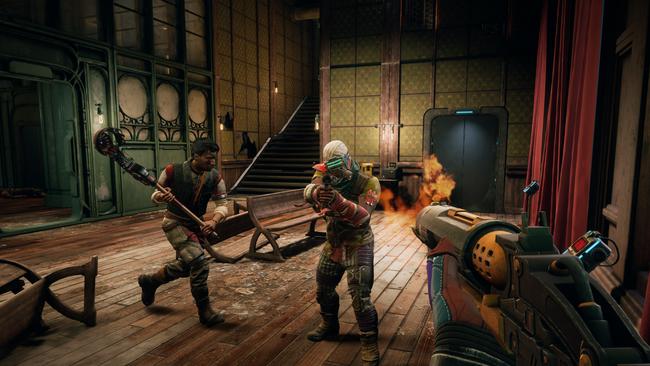
Game Reviews
Don't miss out on the headlines from Game Reviews. Followed categories will be added to My News.
Science fiction and role-playing games are a great mix, and when it’s done by a well-known and highly regarded developer, there’s even more reason to pay attention.
That’s why The Outer Worlds, developed by Obsidian and published by Private Division for PC, PlayStation 4, Xbox One and (in the future) Nintendo Switch, has been generating a lot of hype.
It’s a role-playing game (RPG) where you are a colonist headed for the far-off Halcyon system in the 23rd century. Your colony ship’s drive malfunctions and you arrive 80 years later, with the colony’s Board of Directors deciding to leave the ship — and its inhabitants — on ice at the outer reaches of the system because it’s politically inconvenient for the ship to suddenly show up after being thought lost.
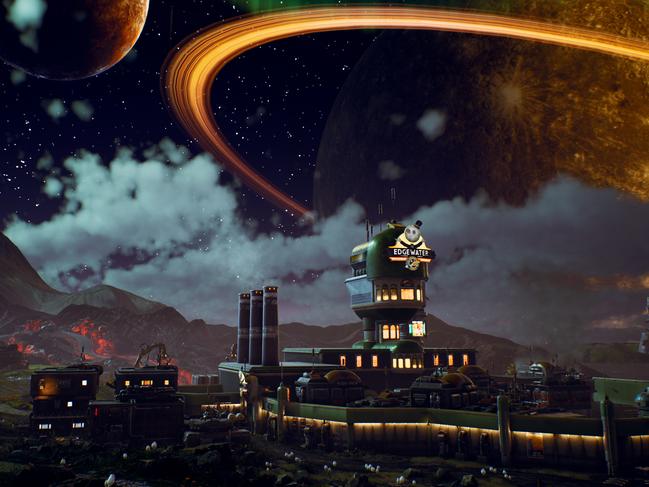
Renegade scientist Phineas Welles has other ideas and breaks into the ship, thaws you out, and enlists your help in saving the colony — which is in far worse shape than anyone imagined.
The lift pitch for The Outer Worlds is essentially “Fallout in space, with special guest appearances from Bioshock and Futurama” — so if you’re like me, your first reaction to that was probably “Shut up and take my money!”
Does the game live up to that level of expectation, though? Yes, yes it does.
The plot is that in the future, giant corporations have essentially purchased the rights to colonise distant solar systems. Having spent all this money, they want to maximise their return on investment, which predictably sinister results.
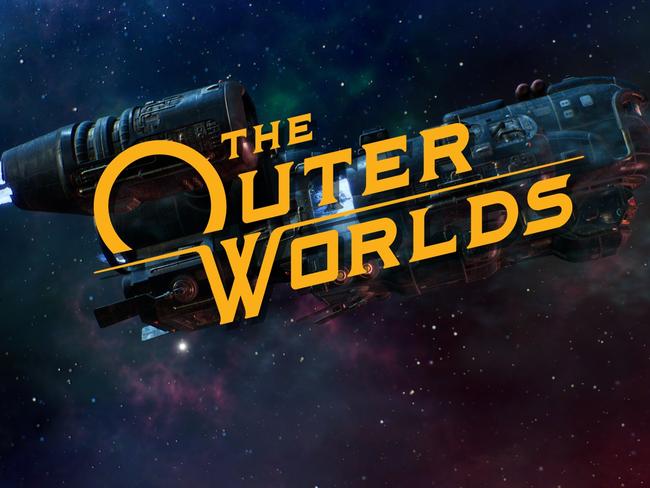
The people who work for the companies aren’t so much employees as indentured servants, with employment contracts requiring them to spout marketing slogans whenever they’re in conversation with anyone (including the random space captain in space armour with a laser gun who has just shown up in their town) and essentially give literally their entire lives to the corporation they serve.
I loved the game’s aesthetic, which was a sort of retro-1920s/Weird West sci-fi theme taking in elements of everything from Bioshock and Dan Dare to Futurama, The Hitch-Hiker’s Guide To The Galaxy and Firefly, among others.
The writing is top-notch too, as is the voice acting. Obsidian are well known for the offbeat humour in their games and The Outer Worlds has it in spades, expertly knowing when to be play things straight and when to let things get silly — and some of the silliness is laugh-out-loud funny.
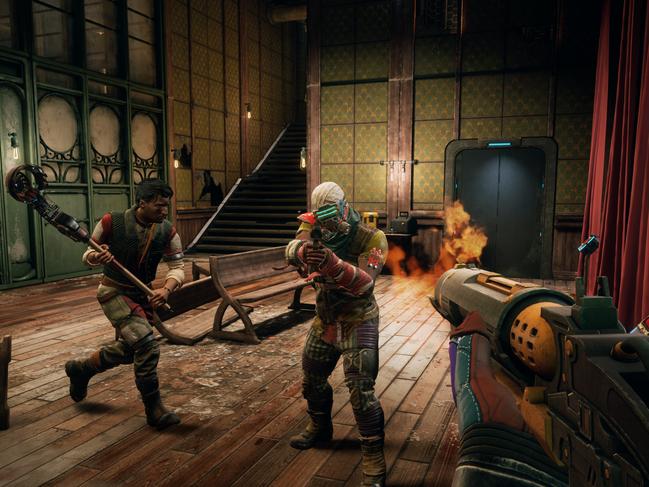
You are joined on your quest by a cohort of companions who can be recruited along the way, ranging from the talented but perpetually anxious engineer Parvati, to alcoholic beast hunter Nyoka and a maintenance mechanoid named Sam who’s determined to literally clean up the scum and filth of the colony.
Graphically, the game isn’t cutting edge, but still looks good, with some nice backdrops and lighting and weapon effects.
The similarities to the Fallout games are clear — Obsidian were responsible for the acclaimed Fallout: New Vegas, which is one of my favourite games of all time — but they’ve made sure it has its own identity so you’re not looking around wondering when the Brotherhood of Steel are going to show up.
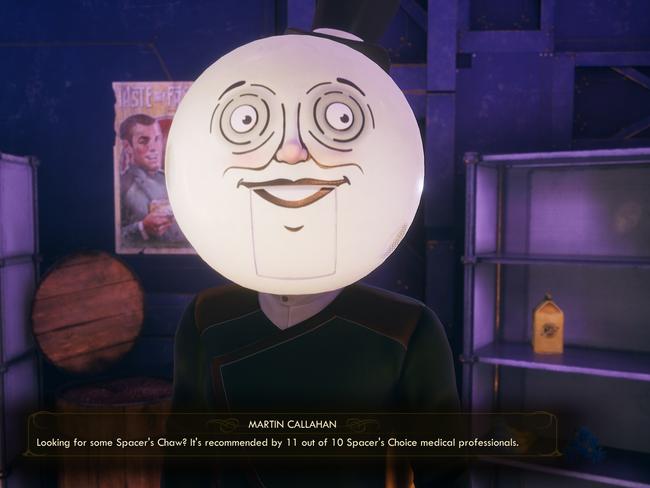
One thing to keep in mind: The Outer Worlds is not a 100-hour RPG. You’re looking at about 25 hours all up (assuming you take your time), which is still a decent sized game with lots to see and do, but it’s a tighter experience in many respects and may not be what fans of traditionally huge RPGs like the Fallout or Skyrim or Witcher games were hoping for.
I did get the strong feeling a lot of content has been held back for expansion packs. There are at least four planets on the map that remained unvisited and were not mentioned by other characters in game, and there’s obviously a lot more to the world of The Outer Worlds that we haven’t seen yet.
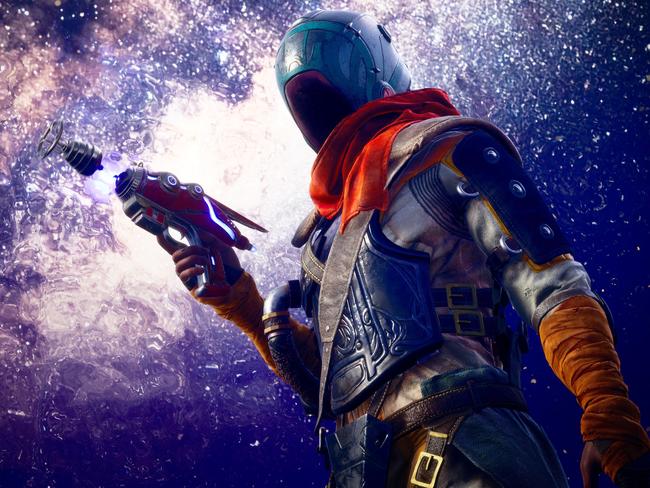
Combat is pretty straightforward — point your gun/plasma sword/flamethrower at threats and fire until said threat is no longer in a position to attack you — but things get mixed up with different weapon types doing different damage (electrical damage weapons hurt robots more, for example).
There are even some literal mad scientist weapons in the game — shrink rays, mind control rays, a gun that fires electrically charged gloop, that sort of thing — to play with too, but I generally found them less effective than a conventional weapon.
Your character has a Tactical Time Dilation ability whereby they can slow down time and make targeted shots against enemies, but the effect doesn’t last long so I didn’t find myself using it a lot.
For the RPG purist, there’s even a Supernova mode that requires your character to regularly eat, drink and sleep, and in which your companions can die permanently if killed in combat.
My major criticisms of the game are that most of the quests seemed to have an either/or resolution — many didn’t have a middle ground or ‘outside the box’ option — and there were some glitches whereby my companions would sometimes teleport into a restricted area if I was right next to it, for example.
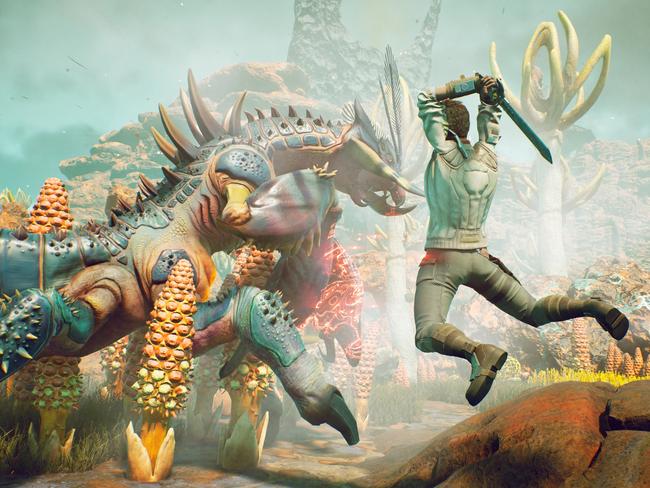
Given the smaller nature of the game, some of the quests seemed to involve a bit of backtracking and I didn’t always feel I was really getting deeply involved in the world of Halcyon; that there was more going on that I wasn’t getting the chance to delve into.
There was also an important plot point that came up in the endgame phase that was completely at odds with what I’d seen an experienced elsewhere in the game world up to that point as well.
The inventory screen isn’t always easy to navigate, especially when you’re trying to work out whether the amusingly named space snack you have found will heal you or boost your perception or increase your speed.
Overall, however, I loved The Outer Worlds — from its great writing, quirky humour, engaging world-building and interesting story — and highly recommend it, even if it’s not as big an experience as I might have liked.
While a new (digital) life may not await you in the off-world colonies, if you are a RPG fan, you really mustn’t delay — book passage to The Outer Worlds right away.
Continue the conversation on Twitter @RoyceWilsonAU
Originally published as The Outer Worlds review: The new game you are going to love
